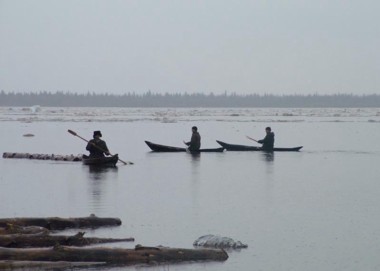As Amherst Cinema continues its festival of animated Hayao Miyazaki films—more on this week’s installment below—I’m reminded of how fluid the definition of a “kids’ movie” can be. Too often, we take it to mean a movie that is simply simple:—a dumbed-down story that hits a few notes over and over, all noise and no nuance; a cartoonish spectacle that may share some of the bright and colorful palette of a Miyazaki masterpiece, but doesn’t offer much beneath that candied surface shell;a strange tales of a young superstar, only slightly off-balance in the face of popping flashbulbs and glitter.
I’m not so jaded as to think there are no great kids’ movies coming out these days; indeed, I’m sure there are more than ever. I’m just not so sure we’re as willing as we once were to expose our children to some of our darker realities—perhaps understandably, when we consider how much of it is forced on them every day in the name of security. But movies—even those that frighten or worry younger viewers—can be a way to make sense of a more “adult” world, as long as you have someone there to hold your hand in the dark.
This Tuesday at 7 p.m., one year after its 50th anniversary, To Kill A Mockingbird comes to Amherst Cinema for one night only, and for those old enough to ask the right questions, it can be a landmark film experience. In it, small-town lawyer Atticus Finch (Gregory Peck) takes an unpopular stand when he agrees to defend Tom Robinson, an African-American man accused of rape. In the milieu of the film—1930s Alabama—it’s a dangerous if ethical decision that puts his career, family, and even life at risk. The very grown-up story is seen from the viewpoint of Finch’s six-year old daughter Scout (Mary Badham), giving younger viewers a point of entry to an adult world and a comfortable (if sometimes discomfiting) sense of familiarity with the movie’s core. In a time when so many films seen by younger viewers are likely to be forgotten in the coming years, the story of Mockingbird—and the lessons it leaves behind—will likely last longer.
For something a bit more modern, Miyazaki’s 1988 film My Neighbor Totoro screens Sunday and Wednesday at the theater. As with many of the director’s works, this early Stateside favorite emphasizes the power of nature and our necessary relationship with our planet. In it, the wonder of the natural world is personified in the Totoros, gentle but powerful creatures—they look like a cross between stuffed bears and the Easter bunny—who can only be seen by children. When two young girls move to the country with their father, they strike up a friendship with their new neighbors.
*
Also this week: Still at Amherst is Happy People: A Year in the Taiga, a remarkable documentary that owes its existence to a humdrum coincidence. Director Werner Herzog (Cave of Forgotten Dreams) dropped in on a friend who happened to be watching a four-hour series of Russian films about hunters living deep in the Taiga, an unmodernized section of Siberia larger than the United States. Transfixed, Herzog tracked down the original director, who agreed to have the film recut and, with a narration by Herzog, released in a theatrical version. The result, though a collaboration, has all the hallmarks of Herzog: a fascination with human experience in isolation, with the wild places left on Earth, and with places untouched by time.
*
And finally this week, a new screening room has quietly opened in the Valley. The Studio Theater is Amherst Cinema’s newest and smallest theater, with room for just a couple dozen viewers. The fully digital projection setup in a defunct retail space near the main cinema building offers a low-cost way for the cinema to feature films that might not otherwise be able to command a screen in the area.
The ball got rolling with Koch, and this week features La Pirogue, a Senegalese film about 30-odd people making an illegal seven-day boat trip to Spain in hopes of finding a better life (running through Thursday, March 14). With the loss of Pleasant Street Theater last year, The Studio Theater may well become the savior of small-crowd specialty film. If that sounds like something you’d like to see, now is the time to get out there and support it.•
Jack Brown can be reached at cinemadope@gmail.com.



